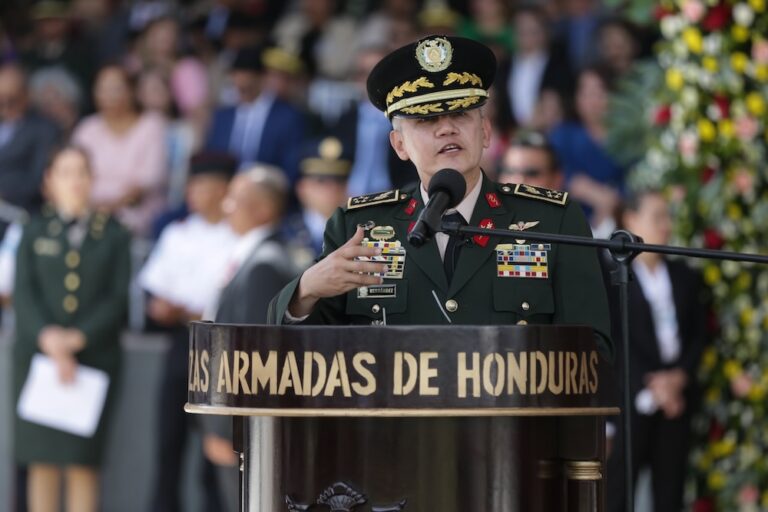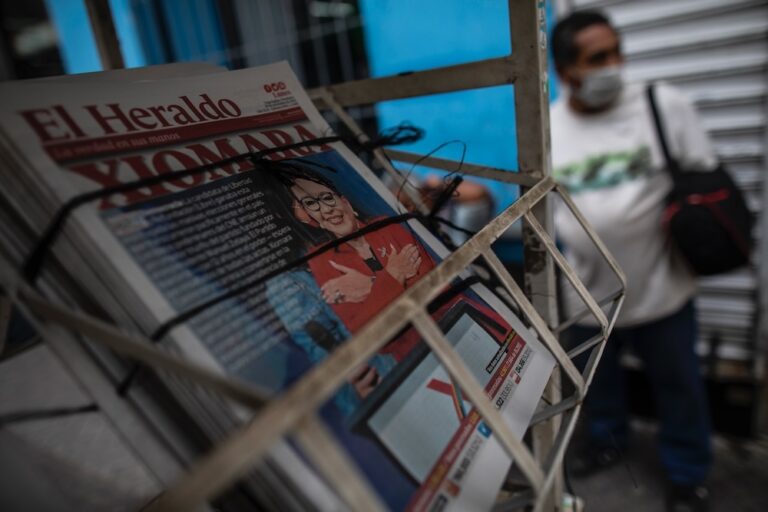The gloomy record of journalists being murdered continued to expand during the last six months in Latin America, where the state of freedom of expression deteriorated enormously in nearly all of the Americas, particularly in Argentina and Ecuador.
(IAPA/IFEX) – Miami, April 11, 2011 – The Inter American Press Association (IAPA) wound up its half-yearly review of the state of press freedom in the Americas after holding its Midyear Meeting in San Diego, California, April 6-9, 2011 in which the delegates adopted the following Conclusions, which are also posted on the Web site http://www.sipiapa.org together with the reports and resolutions that were also adopted.
The gloomy record of journalists being murdered continued to expand during the last six months in Latin America, where the state of freedom of expression deteriorated enormously in nearly all of the Americas, particularly in Argentina and Ecuador.
The violent actions of organized crime took the lives of five journalists (three in Mexico, one in Paraguay and one in Honduras). Another Mexican reporter has gone missing. In Mexico, the most dangerous country to work in as a journalist, the repeated promises of various presidents to make these crimes federal offenses have not been fulfilled and they continue to not be taken up by Congress. Both in this country and in Honduras news media groups agreed to give special treatment to news about the illicit drug trade. But the stigma of organized crime (both of the drug traffickers and guerrilla and paramilitary groups) is expanding to other countries, such as Brazil, Colombia, Paraguay, Peru and those in Central America, where the continual threats made against journalists increase the risk of self-censorship being imposed.
In countries in the Americas such as Argentina, Venezuela, Ecuador, Bolivia, Nicaragua and Guyana campaigns promoted by the very presidents to discredit news media and journalists are frequent and repeated. Verbal and physical attacks on news men and women and threats made in those countries are also repeated in Honduras, the Dominican Republic, Haiti, Panama, Paraguay, Puerto Rico, Brazil and Guatemala.
Court rulings and convictions, as well as legislative bills, have at least the potential of curtailing in different ways freedom of expression in such diverse countries as the United States, El Salvador, Colombia, Nicaragua, Paraguay, Chile, Peru, Jamaica, Bolivia, Brazil, Uruguay and Canada.
The arbitrary distribution of official advertising and the use of taxation to put a halt to criticism are a common means used in Argentina, Venezuela, Nicaragua, Bolivia and Guatemala.
Access to public information continues to be a promise more than a reality. In some countries there are legislative bills on the matter that remain on file in the legislatures, while in others the laws have already been enacted but are being complied with only partially due to the culture of secrecy that exists in government.
The creation of state-owned news media and privately-owned ones that support the government and are maintained solely by public funds, is an already pervasive corrupt practice in Venezuela, Argentina, Bolivia, Ecuador and Nicaragua.
In Venezuela, added to the climate of hostility towards the press that has characterized the government of President Hugo Chávez (with the shutdown of media outlets, journalists going into exile, judicial censure and dissidents being jailed), laws have been created that extend to the Internet restrictions on news that already existed for open radio and television.
( . . . )


